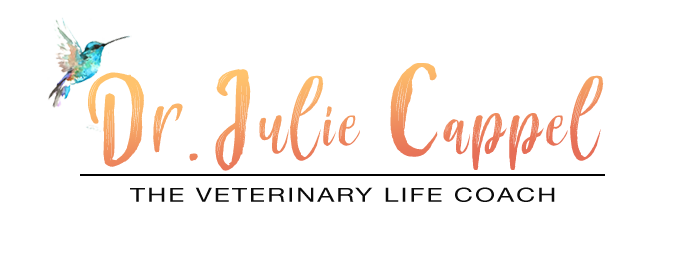Do you have a limiting belief about yourself or the world around you? Most of us do. Do you think you lack something or the world is working against you? We have ideas or stories that we tell ourselves about who we are and why we are not getting what we want in life. They are often subconscious, and we may be unaware of them. They may be a result of our upbringing or something someone told us as a child.
As I work with veterinary professionals as a life coach, I learn more about the limiting beliefs that we all have.
A limiting belief is "a thought or state of mind that you think is the absolute truth and stops you from doing certain things."
We are naturally wired to avoid pain and seek pleasure, so we are drawn into these limiting beliefs because they feel safe and secure. They keep us from pushing up against our comfort zone. Many of my coaching clients feel limited by the belief that veterinarians can't earn a lot of money or they cannot achieve work/life balance. Some think they will not be excellent clinicians because they need to be more confident in their medicine or surgical skills. The limiting belief is that they are not "ready" or "smart enough" to practice veterinary medicine with excellence.
These stories are precisely the things that keep us from doing and becoming all that we want to be.
What are your limiting beliefs? Do you think, "I don't have time, I don't have enough talent, I am not worthy, or I don't deserve success"?
In truth, we all have unlimited potential, and our beliefs are the things that hold us back from getting what we want. Life coaches are valuable because they help point out our limiting beliefs and teach us what we do to our lives by keeping them.
To help uncover your own limiting beliefs, ask yourself some questions. How do I feel about myself, my time, my job, my money, and my life? If any of your answers to these questions sound negative, self-destructive, or keep you from taking action, you need to work on your beliefs.
If you think you are untalented, unworthy, or "out of your league," you probably have a fear of failure. You may be comparing yourself to others or seeing some vision of perfection in the media. To overcome this negative self-talk tendency, start by being aware of how you talk to yourself. Notice the little digs and write them down so you create awareness about how you are hurting yourself. Then practice changing those thoughts into something you might tell a loved friend or relative. Practice showering yourself with affirmations until some of them start to stick.
If you think you don't have time to get what you want, remember that we all have the same amount of hours in the day, but we all have different priorities. Try to think about the most important things you want or need and schedule them first. Do not use the excuse that you don't have time, but make the time to start working to get them done.
If you want to gain more talent to do a great job in veterinary medicine, start thinking about working to be better each day. We all have a tendency towards impostor syndrome. I have been in this profession for over thirty years and still doubt myself. We all are a work in progress, and we become better by practicing. If you focus on the things you want to learn, open up to accepting help from your colleagues, and put in the effort, you will become everything you dream of being and more.
Take some time to become aware of your limiting beliefs and do the work needed to begin to let them go. As you do, you will uncover your unlimited potential and begin to soar.
Dr. Julie Cappel
You are allowed to be both a masterpiece and a work in progress. – Sophia Bush






